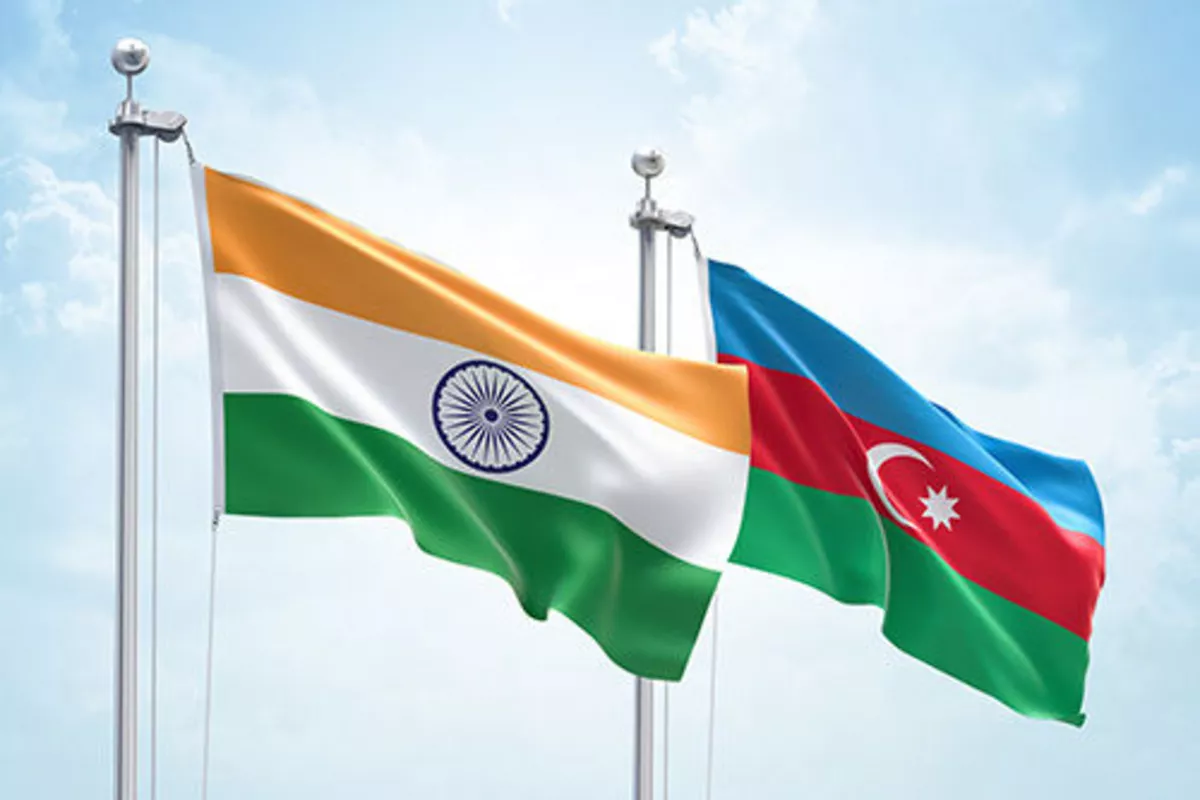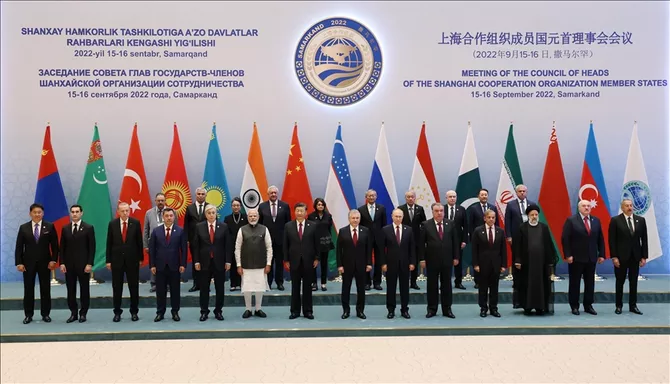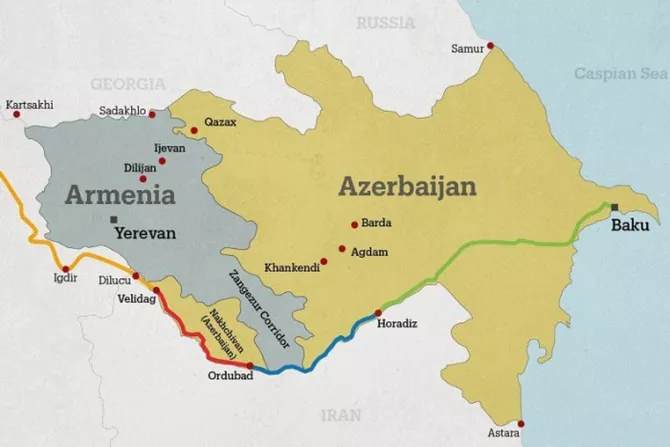
The 25th Shanghai Cooperation Organization (SCO) summit, held on August 31 - September 1 in Tianjin, China, revealed a profound shift in the regional balance of power. The most striking development was the visible rapprochement between China and India - two Asian giants with a long history of rivalry, mistrust, and open confrontation.
For decades, relations between Beijing and New Delhi have been marked by border clashes, most notably the bloody skirmishes in the Galwan Valley in 2020, military stand-offs in the Himalayas, and intense competition for influence across Asia. Economically, the two countries have been locked in a fierce struggle to dominate key industries, while politically they have often found themselves on opposite sides of global debates. To many observers, their differences seemed too entrenched to overcome, and a path toward reconciliation appeared nearly impossible.

Yet this year’s SCO summit demonstrated how quickly geopolitics can evolve when external pressures intensify. Washington’s growing sanctions regime - aimed at curbing both Chinese technological advances and India’s independent foreign policy decisions - has become a powerful unifying factor. By targeting Chinese and Indian companies with restrictive measures, the United States inadvertently encouraged Beijing and New Delhi to reassess their relationship. Confronted with a shared threat, both sides began to recognize the value of pragmatism over hostility.
During the summit, China and India agreed to deepen their cooperation, strengthen economic partnerships, and coordinate their approaches to regional security. This diplomatic breakthrough echoed the old adage that “a bad peace is better than a good quarrel.” For two countries with a combined population of nearly three billion and rapidly growing economies, such rapprochement represents not only a strategic necessity but also a potential game-changer for the entire Eurasian continent. By standing together, they can resist external pressure more effectively and amplify their voices in shaping global governance.
Unfortunately, this spirit of pragmatism has yet to extend to India’s policy toward Azerbaijan. At the very same summit where New Delhi reached out to Beijing, it once again blocked Azerbaijan’s application to join the SCO. This decision was met with disappointment in Baku and interpreted - including by Azerbaijani President Ilham Aliyev - as a deliberate act of political retaliation for Azerbaijan’s close alliance with Pakistan.
India’s move highlights a troubling double standard. While it seeks to mend fences with a former adversary like China, it continues to allow old grievances to dictate its stance toward Azerbaijan. Rather than strengthening regional stability, this approach fuels division and limits India’s own ability to shape outcomes in a strategically vital area.
The roots of this policy lie in India’s geopolitical bet on Armenia. Over the past several years, New Delhi has sought to expand its influence in the South Caucasus by supporting Armenia, including through arms sales and diplomatic backing. The hope was that Yerevan could serve as a gateway for India’s ambitions in the region, particularly through the proposed “Persian Gulf - Black Sea” corridor.
However, this strategy is fundamentally flawed. Armenia is landlocked and geographically isolated, lacking the infrastructure and resources needed to serve as a true transit hub. The “Persian Gulf - Black Sea” project exists largely on paper, with no serious progress made toward its realization. Even within India, there is a clear understanding that without massive financial commitments - which so far have not materialized - the corridor will remain a theoretical construct.

Meanwhile, Azerbaijan is rapidly advancing the Zangezur Corridor, a transformative route designed to connect East and West through the South Caucasus. This project has the backing of Türkiye and other regional powers and is already reshaping the conversation about trade connectivity. Once operational, the Zangezur Corridor will not only enhance Azerbaijan’s role as a transport hub but also render the “Persian Gulf - Black Sea” route economically and logistically irrelevant. For India, this would mean losing a crucial opportunity to access the Black Sea and European markets.
Pragmatism should dictate a recalibration of India’s policy. Just as New Delhi chose to engage constructively with Beijing despite decades of animosity, it should recognize that a productive relationship with Baku serves its long-term interests far better than clinging to grievances over Azerbaijan’s support for Pakistan on the Kashmir issue. Supporting Azerbaijan’s bid to join the SCO could have been a bold step - one that signaled a willingness to move beyond past disputes and embrace a more strategic, forward-looking partnership.
The benefits of such cooperation are clear. For India, engaging with Azerbaijan through the SCO would not only improve bilateral ties but also enhance its influence over regional dynamics. It would allow India to position itself as a global power committed to multilateralism and connectivity, while also countering the growing presence of rival powers like China and Türkiye in the South Caucasus.
Recent developments underscore the urgency of this shift. In Washington, Azerbaijani President Ilham Aliyev and Armenian Prime Minister Nikol Pashinyan signed a memorandum of intent to conclude a peace treaty. This landmark event suggests that Armenia’s role as a key security partner for India is diminishing. Once the peace process advances, Yerevan will no longer serve as a reliable ally in the realm of military-technical cooperation.
This leaves India with a stark choice: prioritize the diversification of trade routes and secure faster, safer access to global markets, or continue down the path of retaliation against Azerbaijan for its alignment with Pakistan. So far, New Delhi has chosen the latter - but at a steep cost. Blocking Azerbaijan has not weakened it. On the contrary, it has pushed Baku into closer collaboration with both Pakistan and China, creating a powerful alignment that could eventually challenge India’s regional ambitions.
India, the birthplace of chess, understands better than most the dangers of a zugzwang - a situation in which every move worsens one’s position. Yet that is precisely where its current South Caucasus strategy is heading. By persisting with a short-sighted policy, India is limiting its options and empowering its rivals.
The example of China-India rapprochement offers a clear lesson. Even the deepest historical rifts can be bridged when national interests demand it. It is time for New Delhi to apply the same logic to Azerbaijan. Embracing cooperation with Baku, rather than confrontation, would strengthen India’s hand, open new opportunities for trade and diplomacy, and contribute to regional stability. If India fails to act now, it risks finding itself isolated in a region where the rules of the game are being rewritten - and where the next move may no longer be its to make.
By Asif Aydinly
Share on social media